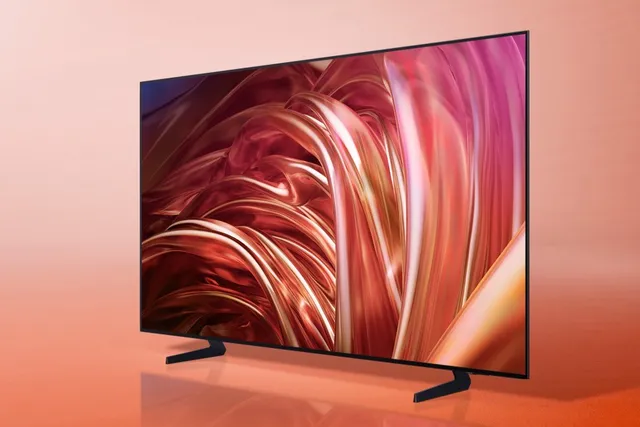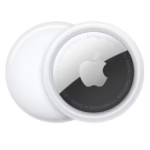Samsung’s 2025 TVs and soundbars will be ready for YouTube videos that use the Eclipsa Audio format for 3D sound experiences.
In an exciting move for the world of immersive sound, Samsung and Google have announced the launch of a groundbreaking 3D audio standard: Eclipsa Audio. Set to debut in select YouTube videos later this year, this innovative format promises to revolutionize spatial audio experiences and will be featured across Samsung’s 2025 lineup of TVs and soundbars. This bold initiative positions Eclipsa Audio as a direct competitor to Dolby Atmos, the reigning champion of 3D audio technology.
A Strategic Alternative to Dolby Atmos
Samsung’s rivalry with Dolby is no secret. Over the years, the South Korean tech giant has resisted adopting Dolby Vision HDR for dynamic metadata, opting instead to champion its own HDR10+ technology. Now, Samsung appears ready to replicate this approach in the realm of audio by pushing Eclipsa Audio as an open-source alternative to Dolby Atmos.
Similar to Dolby Atmos, Eclipsa Audio supports sophisticated sound mapping, allowing audio engineers to control the location, intensity, and spatial reflections of sounds to create an immersive 3D experience. However, the key differentiator lies in its accessibility. As a free and open-source format, Eclipsa Audio eliminates licensing fees—a move that could disrupt the industry and make high-quality spatial audio more widely available.
The Birth of Eclipsa Audio
The seeds of this project were sown in 2023 when Samsung and Google first announced their partnership to develop a cutting-edge spatial audio format. Initially dubbed the Immersive Audio Model and Formats (IAMF), this initiative aimed to establish a comprehensive open-source framework for 3D audio—from content creation to delivery and playback. Samsung’s head of spatial audio, WooHyun Nam, described the format as “a complete open-source solution that empowers creators, device manufacturers, and consumers alike.”
Fast forward to 2025, and Eclipsa Audio is ready to make its mark. The format has already garnered support from the Alliance for Open Media (AOM), a coalition of tech giants including Amazon, Apple, Microsoft, and Netflix. This endorsement aligns with the group’s mission to promote royalty-free codec support, exemplified by their work on the AV1 video codec.
A Growing Ecosystem of Support
While Dolby Atmos currently dominates the 3D audio market, Eclipsa Audio’s open-source nature could make it a formidable contender. The backing of industry heavyweights like Samsung and Google, combined with potential adoption by other AOM members, provides a strong foundation for the format’s success. However, history shows that widespread adoption can be a slow process—it took years for the AV1 codec to gain traction. Whether Eclipsa Audio can avoid a similar fate remains to be seen.
To ensure consistent audio quality across devices, Samsung and Google are also introducing a certification program in collaboration with the Telecommunications Technology Association. This program will set performance standards for devices using the Eclipsa Audio format, mirroring the quality assurance processes employed by companies like Dolby and THX.
What This Means for Consumers
For consumers, the introduction of Eclipsa Audio could usher in a new era of affordable and accessible 3D audio experiences. By eliminating licensing fees, the format could lower the cost of compatible devices and encourage broader adoption across streaming platforms and content creators. Imagine watching a YouTube video or streaming your favorite series with theater-quality spatial audio—all without the premium price tag associated with proprietary technologies like Dolby Atmos.
Samsung’s upcoming 2025 TVs and soundbars will serve as the launchpad for this new format, offering early adopters a chance to experience Eclipsa Audio firsthand. Additionally, the integration of the format into YouTube videos signals a significant step toward mainstream adoption, as the platform’s massive user base provides a ready-made audience for this next-generation audio technology.
Looking Ahead: CES 2025 and Beyond
The timing of this announcement couldn’t be better, as CES 2025 is just around the corner. Industry insiders expect Samsung and Google to showcase Eclipsa Audio in action at the event, providing a sneak peek at the future of open-source 3D audio. From live demos to technical deep dives, the unveiling of Eclipsa Audio is sure to generate buzz among tech enthusiasts and industry professionals alike.
Looking further ahead, the success of Eclipsa Audio will likely hinge on its adoption by other major players in the tech and entertainment industries. If streaming platforms like Netflix and Disney+ integrate the format into their content ecosystems, it could significantly accelerate its momentum. Similarly, support from audio equipment manufacturers and game developers could help establish Eclipsa Audio as a versatile and universally accepted standard.
Conclusion
Samsung and Google’s introduction of Eclipsa Audio marks a bold challenge to the status quo. By offering a free, open-source alternative to Dolby Atmos, the two tech giants are aiming to democratize 3D audio and make it accessible to a broader audience. While the road to widespread adoption may be long, the potential impact of this format on the audio industry is undeniable.
As CES 2025 kicks off next week, all eyes will be on Eclipsa Audio and its promise to redefine the way we experience sound. Whether you’re a tech enthusiast, a content creator, or simply a lover of immersive entertainment, this new audio standard is worth keeping on your radar. The future of spatial audio has arrived, and it’s called Eclipsa Audio.










